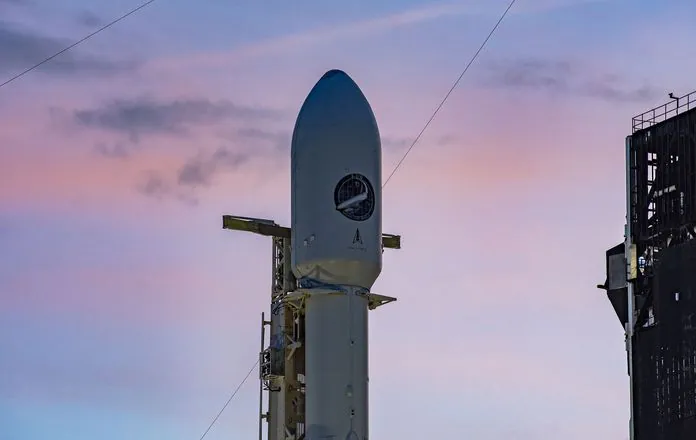© ROOT-NATION.com - Use of content is permitted with a backlink.
We’ll have to wait at least another day to see the SpaceX Falcon Heavy rocket take to the skies alongside the X-37B orbital plane.
The launch of the X-37B using the Falcon Heavy was initially expected to take place on December 10. However, SpaceX postponed the launch due to adverse weather conditions. Therefore, Falcon Heavy was supposed to launch the X-37B robotic orbital plane of the US Space Force on Tuesday night (Kyiv time). But about 30 minutes before launch, SpaceX announced the cancellation again.

“We are cancelling today’s Falcon Heavy launch due to a problem with the ground section. The rocket and payload remain serviceable. The team is preparing for the next opportunity to launch the USSF-52 mission, which will take place no earlier than tomorrow evening,” the official SpaceX Twitter account reported.
USSF-52 will be the seventh launch of the 8.8m X-37B reusable orbital plane, which the military says is primarily a test bed for new instruments and other technologies. Most of the payloads and other details of the X-37B missions are classified for obvious reasons.
The first five X-37B missions were launched by United Launch Alliance’s Atlas V launch vehicles. The last of these landed in November 2022 after 908 days in orbit and launched on a SpaceX Falcon 9 rocket. So USSF-52 will be the first X-37B mission to lift off on a Falcon Heavy.

This powerful rocket can lift a space plane higher than it has ever climbed before. And this can happen because the goals of the future mission “include work in new orbital regimes, experiments with space awareness technologies and research on the effects of radiation on NASA materials,” the representatives of the Space Force reported. During a radiation experiment, NASA will expose plant seeds to the harsh space environment.
Falcon Heavy debuted in February 2018 – she sent the red Tesla Roadster of SpaceX founder and CEO Elon Musk into orbit. The launch vehicle has made eight flights, four of which have already taken place this year. The rocket’s last flight was in October of this year when it launched NASA’s Psyche asteroid probe.
Read also:
- Astronomers could see a star from another galaxy in the centre of the Milky Way
- MediaTek WiFi 7 chips will start rolling out next year to drive innovation


